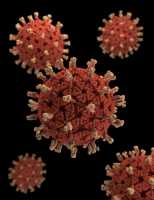Author Interviews, Diabetes, Infections, JAMA, Pediatrics, Vaccine Studies / 22.01.2019
Type 1 Diabetes Cases Drop After Rotavirus Vaccine Introduced
MedicalResearch.com Interview with:
Dr Kirsten Perrett MBBS FRACP PhD
Team Leader / Clinician-Scientist Fellow, Population Allergy, Murdoch Children's Research Institute
Consultant Paediatrician, Department of Allergy and Immunology and General Medicine
The Royal Children's Hospital
Fellow, School of Population and Global Health
The University of Melbourne
Parkville, Victoria Australia
MedicalResearch.com: What is the background for this study?
Response: Before rotavirus vaccines were available, rotavirus infection was the most common cause of severe gastroenteritis in infants and young children. Because it is so contagious, infection in childhood is thought to be universal in unvaccinated children.
Previous studies indicated that rotavirus infection of infants might be an environmental promoter of type 1 diabetes. Therefore, we anticipated that the introduction of the rotavirus vaccine might alter the disease incidence in young children.
(more…)





